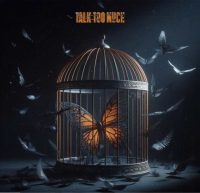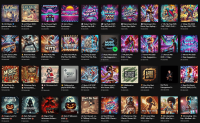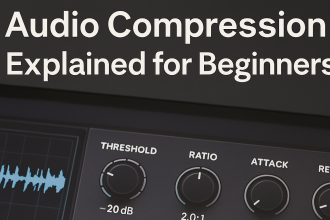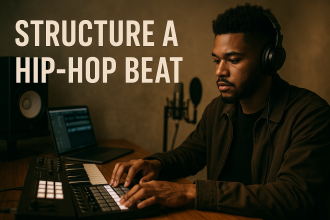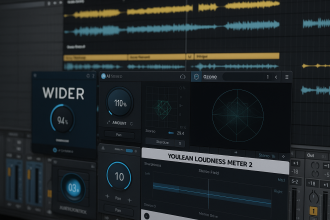And Avoid Losing 6 Months of Work
Losing months of creative work due to a hard drive failure, corrupted files, or simply poor organization is every music producer’s nightmare. Whether you’re a beginner making beats in FL Studio or a seasoned pro in Studio One, backing up your projects smartly is as essential as EQing your mix.
In this article, we’ll break down practical strategies to ensure your music is always safe: from cloud solutions and external drives to proper naming conventions and even plugins that can save your workflow.
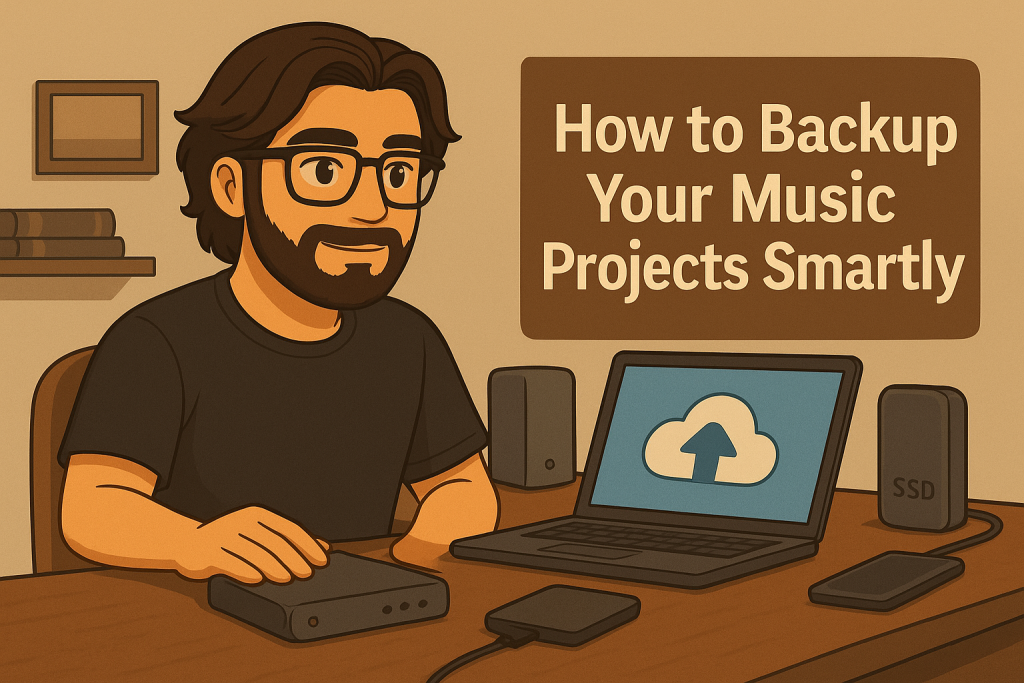
1. Why Backups Matter in Music Production
Your DAW (Studio One, Ableton, FL Studio, Logic, etc.) saves sessions as project files, but if you lose them, you don’t just lose notes—you lose plugins settings, automation, and sometimes audio recordings that can’t be recreated.
Imagine crafting the perfect track, only for your laptop to crash. Without a proper backup system, you could lose months of work instantly. Smart producers treat backup as part of the production process.
2. Use Cloud Storage for Instant Sync
Cloud services offer automatic syncing, so you don’t need to think about dragging files manually. They also protect your projects in case your computer is stolen or damaged.
- Google Drive – Reliable, integrates with PC/Mac, free plan available.
👉 Google Drive - Dropbox – Perfect for collaboration, lets you restore previous versions of projects.
👉 Dropbox - OneDrive – Best for Windows users, seamless system integration.
👉 OneDrive
Pro tip: Use selective sync so your DAW doesn’t slow down with too many cloud files.
3. External Hard Drives: Your First Line of Defense
Even with cloud storage, an external hard drive is essential. It’s faster for large project files and ensures you have a local copy in case of internet issues.
- Go for SSD drives (faster, more reliable than HDD).
- Use a 2-Drive Rotation System: Keep one drive at home, another offsite.
- Recommended models: Samsung T7 SSD, SanDisk Extreme Portable SSD.
👉 Samsung T7 SSD
👉 SanDisk Extreme Portable SSD
4. Naming Versions Properly
How many times have you seen “Track_Final_V3_FINAL_Mix3.wav”?
Poor naming creates chaos. Instead, use this format:
ProjectName_YYYYMMDD_Version
Example: Obstinate_20250917_V1
This way, you know exactly when and which version you’re working on.
5. Export Stems Regularly
Stems are audio files of each track in your project. Exporting them ensures you can reopen the project even if your VSTs or DAW updates break compatibility.
- Export dry stems (without effects).
- Export wet stems (with effects).
That way, even if you lose plugin presets, you still have the mixable audio.
6. Use Project Management Plugins
Some plugins help manage your DAW sessions and backups:
- Plugin Doctor (DDMF) – Not for backups, but for testing plugin compatibility. Useful before archiving projects.
👉 DDMF Plugin Doctor - Steinberg VST Transit – A cloud-based collaboration and backup tool integrated in Cubase/Nuendo.
👉 Steinberg VST Transit - Acon Digital Multiply (Free) – Great free chorus plugin, safe to archive because it’s lightweight and stable. Using stable/free VSTs ensures your old projects can reopen.
👉 Acon Digital Multiply
While not “backup” plugins per se, choosing reliable VSTs is part of project safety.
7. Automate Your Backup Routine
Don’t rely on memory—automate.
- Mac: Use Time Machine.
- Windows: Use built-in Backup and Restore or software like Acronis True Image.
👉 Acronis Cyber Protect Home Office
Schedule daily or weekly backups depending on how often you produce.
8. The Smart Workflow for Safe Projects
Here’s a bulletproof workflow:
- Work locally on your SSD.
- Sync daily to your cloud storage.
- Weekly export to an external SSD (stems + project files).
- Name versions consistently.
- Check once a month that backups actually work.
This way, you’ll never lose 6 months of work again.
Conclusion
Music production isn’t just about creativity—it’s also about protecting your work. By using a mix of cloud storage, external SSDs, proper versioning, exporting stems, and automation, you can ensure your projects are safe, no matter what happens.
The best producers don’t just make hits—they safeguard them.
![]()











